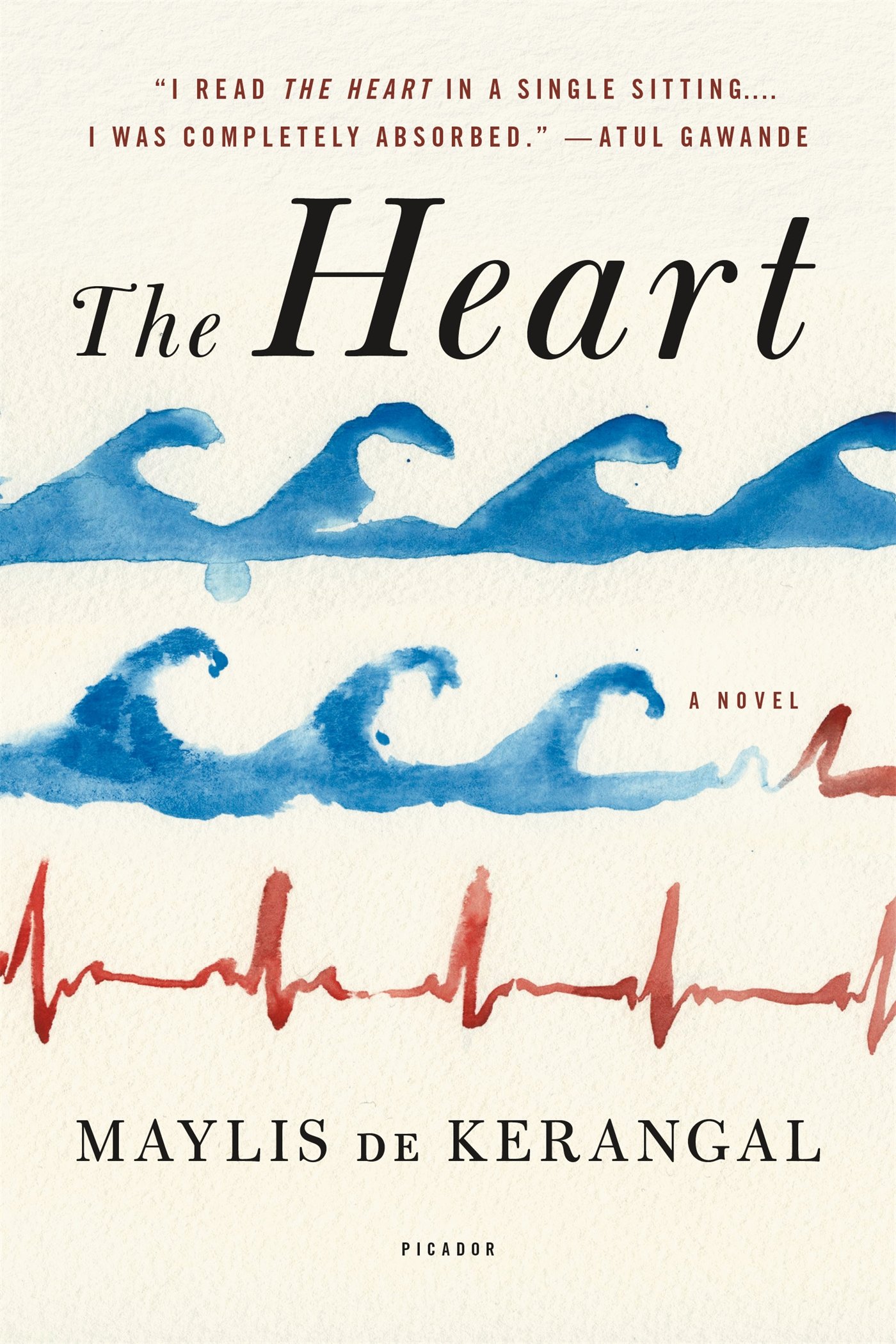
I recommend a lot of nonfiction books on Gates Notes, and every once in a while I review a novel. But I don’t think I’ve ever written about a book of poetry before. That’s almost what Maylis de Kerangal’s The Heart is, though. It’s poetry disguised as a novel.
The story itself is simple: three French 20-year-olds go surfing in the middle of the night, and as they’re driving back from the beach just before sunrise they get in a car accident. Two of them survive but one of them, Simon, dies, and his parents have to decide whether to donate his heart or not. They decide to do it, and doctors transplant the heart, and the book is over. That’s it.
The car crash happens in the first 15 pages, so the rest of the book is a meditation on life, death, and, as the title suggests, the heart. There aren’t even that many characters: you meet Simon’s father and mother, the doctor on duty at the hospital when Simon gets there, the nurse assisting him, the head of the organ donation organization, the woman who gets the heart in the end, and a few other people.
But just describing the plot is like saying “during a heart transplant, doctors put one person’s heart into another person’s body” and leaving it at that. It’s not the plot that makes The Heart such a wonderful book. First of all, there’s the language. It makes me think of Vladimir Nabokov more than anybody else. The sentences are rich and full, and they go on and on, which is the exact opposite of how I write. There are sentences that last entire paragraphs.
At times I found myself reading more slowly than usual, simply because the way she describes things is so beautiful: at one point she describes a character’s words as “reddening rocks from a still-burning fire.” The word choices are very specific—I went to the dictionary a dozen times to look up words I didn’t know—but “rhizomic” turned out to be exactly what the passage needed.
The book connects you deeply with people who are only in the story for a few minutes. You get really detailed backstories about all the characters: Kerangal goes on for pages about the girlfriend of the surgeon who does the transplant, for example, even though you never meet that character. In the end, the effect is to remind you that all the people you meet in the novel— and all the people you meet every day, even if it’s just for a few seconds—have lives as full as yours.
And then there are the themes Kerangal is dealing with: grief most of all, and how it feels to have to change your life suddenly because somebody who was in it isn’t in it anymore. When I travel for the foundation, I meet parents whose children have died and children whose parents have died, and I get sad every time. This book forced me to feel the depth of that grief, and it was an experience I appreciated.
I told a friend the other day that she especially would like The Heart. Just like me, she mostly reads nonfiction, and this book is a good counterweight. When Melinda recommended the book to me, she said, “It’s different from most of the books you read.” And that’s true—but part of the reason for that is that it’s different from most books.
(Read TIME’s affiliate link policy.)
This article originally appeared on GatesNotes.com
More Must-Reads from TIME
- Cybersecurity Experts Are Sounding the Alarm on DOGE
- Meet the 2025 Women of the Year
- The Harsh Truth About Disability Inclusion
- Why Do More Young Adults Have Cancer?
- Colman Domingo Leads With Radical Love
- How to Get Better at Doing Things Alone
- Michelle Zauner Stares Down the Darkness
Contact us at letters@time.com